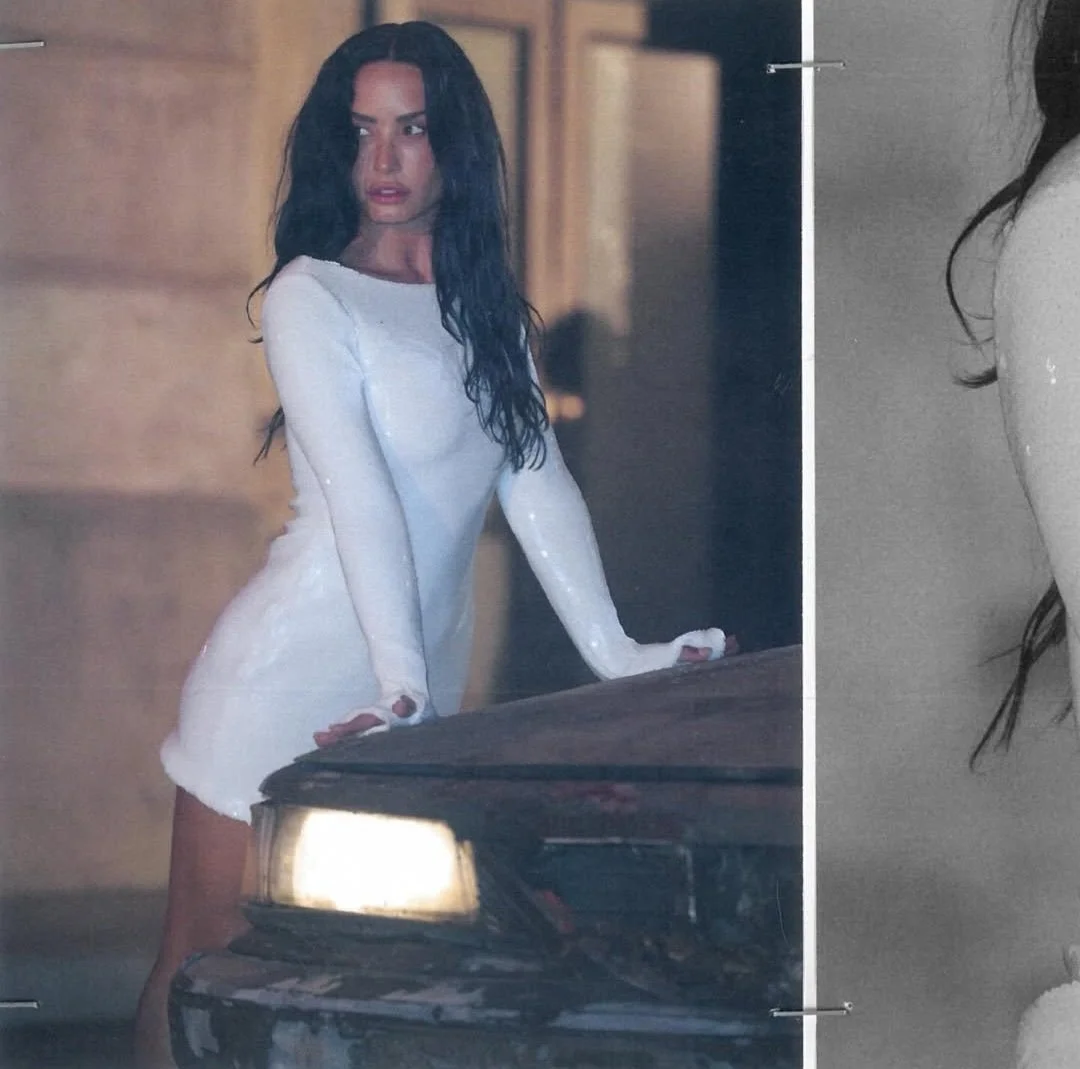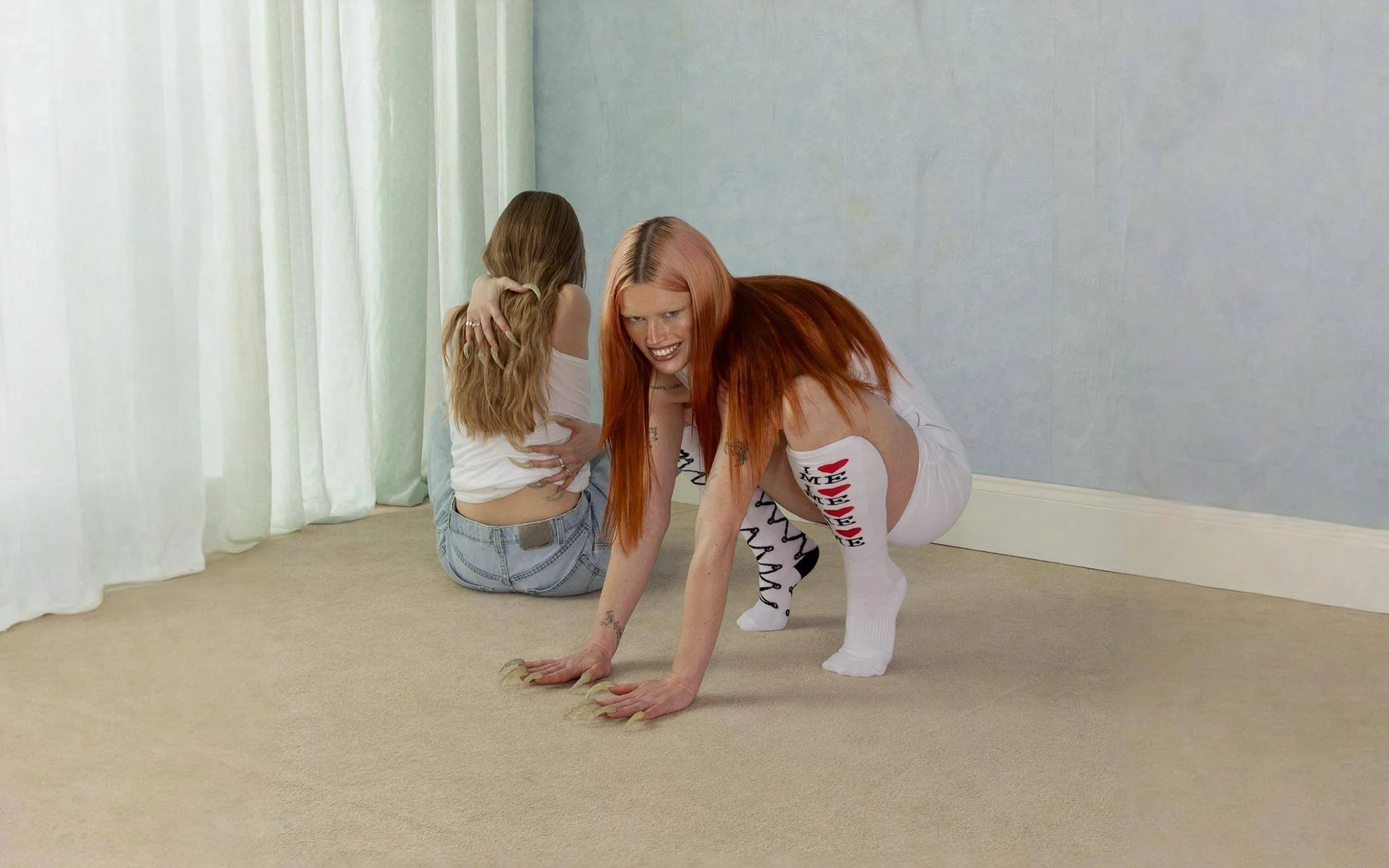Renée Rapp - Bite Me
The pop star’s second studio album plays like a glossy spread ripped from a stack of early-2000s fashion magazines — all glittering party highs and awkward, overshared texts to ex-lovers.
Renée Rapp’s sophomore album BITE ME, released via major label Interscope, is a glammed-up, emotionally unstable time capsule. Imagine a scrapbook of Y2K-era fashion magazine covers, chaotic afterparties, and cringe-inducing texts to your ex — it’s all in there, and it’s all very loud on purpose. Across twelve tracks, the singer and actress stitches together power-pop gloss, alt-rock tension, synth-drenched hooks, and stripped-down balladry into something that often feels like the soundtrack to a teen comedy directed by your therapist.
From the opening seconds of “Leave Me Alone”, Rapp sets the tone with a raucous, flirtatiously unpolished track that channels the brat-pop energy of early P!nk. It’s an anthem of industry exhaustion and party-girl defiance, where label obligations and managerial chaos blur into one sparkling middle finger. Then comes “Mad”, a cooler gust of alternative breeze, where Rapp loosens up and leans into a breezy, unfiltered vocal delivery that makes the track one of the album’s boldest.
One of Rapp’s undeniable strengths lies in her adaptability: her voice shapeshifts to fit whatever genre she throws herself into. On the emotionally bare “Sometimes”, she lets her vocals do most of the heavy lifting, giving the song a sense of fragile gravity. Meanwhile, on the 80s-tinged “Good Girls”, she sounds ethereal and smoky all at once — a tonal pivot that keeps the album from collapsing into monotony. There’s a distinct throughline here that echoes Olivia Rodrigo’s GUTS: both albums blur angsty alt-pop with moody ballads, balancing slick production with Gen Z self-doubt.
Still, BITE ME occasionally falls victim to its own formula. For all its polish and vocal finesse, the album suffers from a thematic bottleneck. Rapp cycles through variations of the same three ideas — failed relationships, queer desire, and performative empowerment — without much lyrical innovation. It’s not bad writing, just flatly repetitive. The emotional stakes blur together, and by the halfway mark, even the most punchy tracks start to feel like déjà vu.
There’s also a sense that Rapp herself isn’t quite sure what she wants — romantically or musically — which creates a kind of narrative dissonance. That may be intentional, a reflection of generational confusion, but it can leave the listener stranded in the same fog she’s navigating. Still, there are moments where the awkwardness works in her favor: the looping bridge on “At Least I’m Hot” is so gleefully dumb it circles back to being brilliant, like a joke told one too many times that suddenly becomes hilarious again.
Ultimately, BITE ME confirms what most already suspected: Renée Rapp has star quality and undeniable vocal chops, but she’s still figuring out how to build a record that holds up front to back. The album doesn’t break new ground, and in places it drags, but it’s self-aware, sonically confident, and charming enough to keep you engaged — even if only as a curious bystander in a New York afterparty you’re not sure how you got invited to. Call Uber. We’re going anyway.
6.8/10




